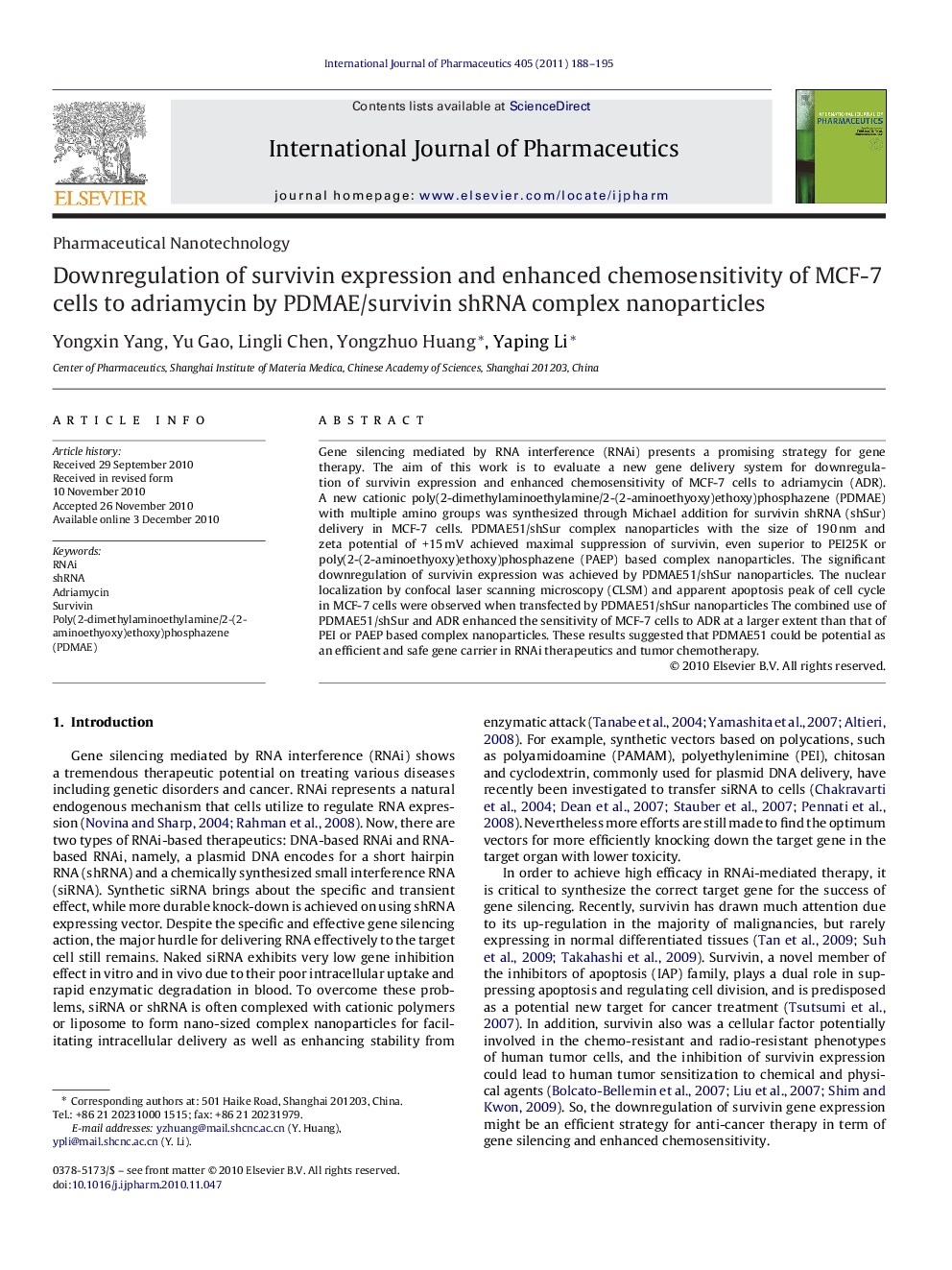| Article ID | Journal | Published Year | Pages | File Type |
|---|---|---|---|---|
| 2503653 | International Journal of Pharmaceutics | 2011 | 8 Pages |
Gene silencing mediated by RNA interference (RNAi) presents a promising strategy for gene therapy. The aim of this work is to evaluate a new gene delivery system for downregulation of survivin expression and enhanced chemosensitivity of MCF-7 cells to adriamycin (ADR). A new cationic poly(2-dimethylaminoethylamine/2-(2-aminoethyoxy)ethoxy)phosphazene (PDMAE) with multiple amino groups was synthesized through Michael addition for survivin shRNA (shSur) delivery in MCF-7 cells. PDMAE51/shSur complex nanoparticles with the size of 190 nm and zeta potential of +15 mV achieved maximal suppression of survivin, even superior to PEI25K or poly(2-(2-aminoethyoxy)ethoxy)phosphazene (PAEP) based complex nanoparticles. The significant downregulation of survivin expression was achieved by PDMAE51/shSur nanoparticles. The nuclear localization by confocal laser scanning microscopy (CLSM) and apparent apoptosis peak of cell cycle in MCF-7 cells were observed when transfected by PDMAE51/shSur nanoparticles The combined use of PDMAE51/shSur and ADR enhanced the sensitivity of MCF-7 cells to ADR at a larger extent than that of PEI or PAEP based complex nanoparticles. These results suggested that PDMAE51 could be potential as an efficient and safe gene carrier in RNAi therapeutics and tumor chemotherapy.
Graphical abstractFigure optionsDownload full-size imageDownload as PowerPoint slide
